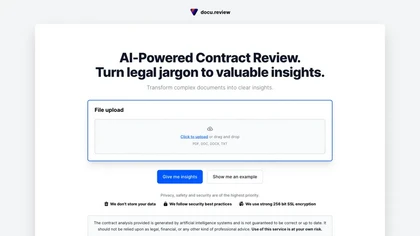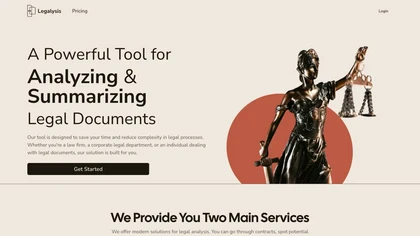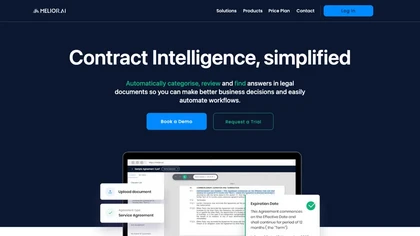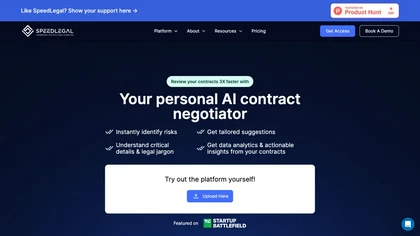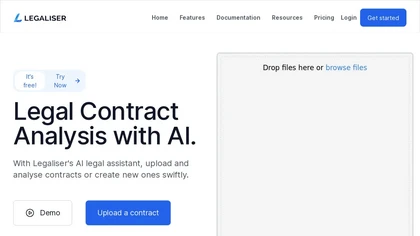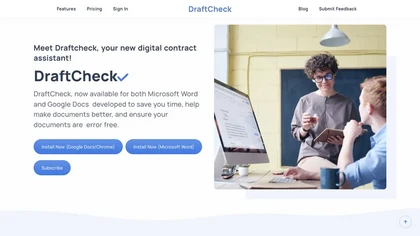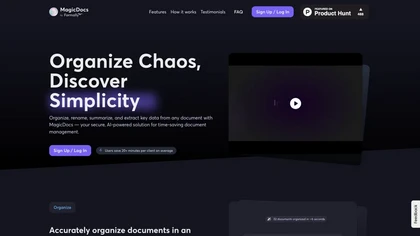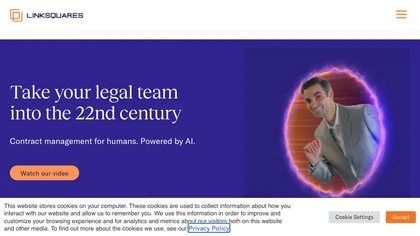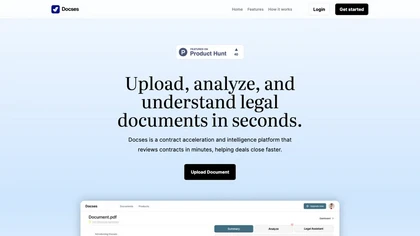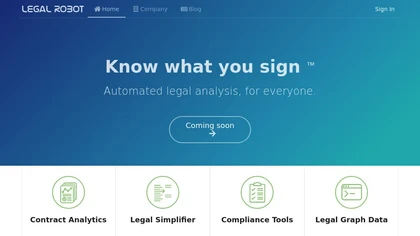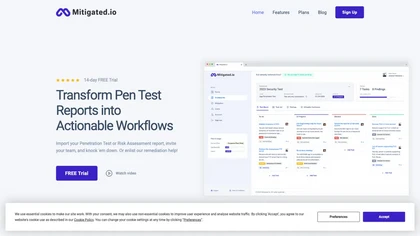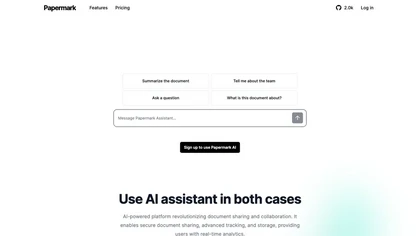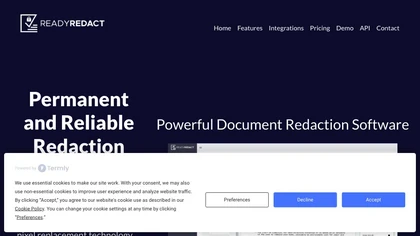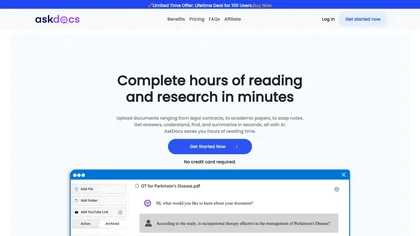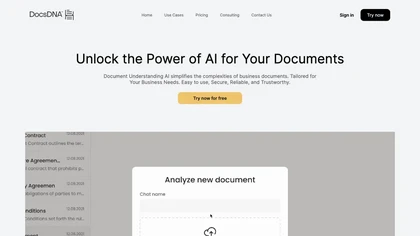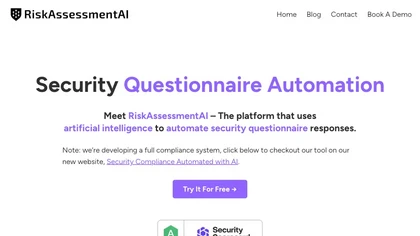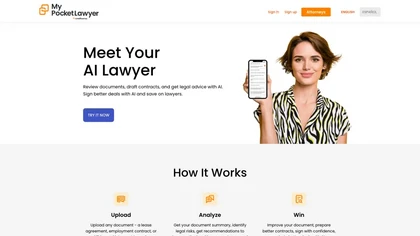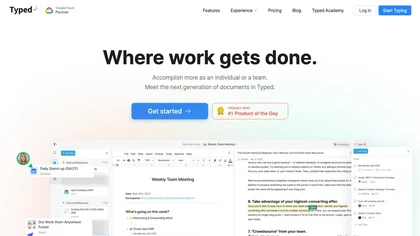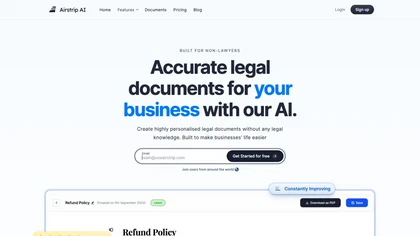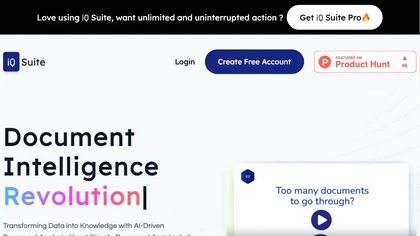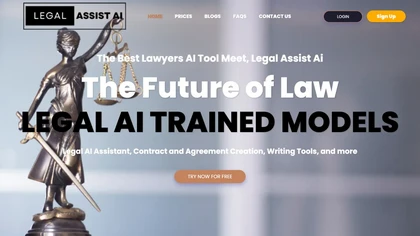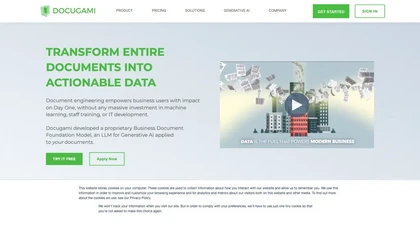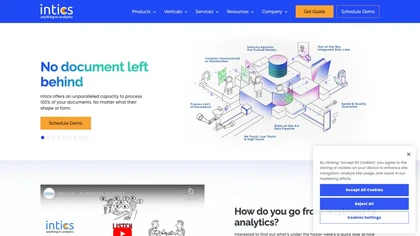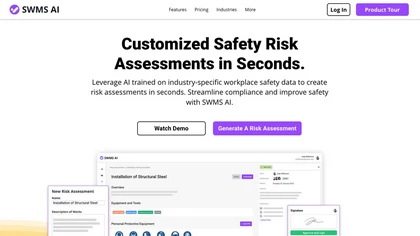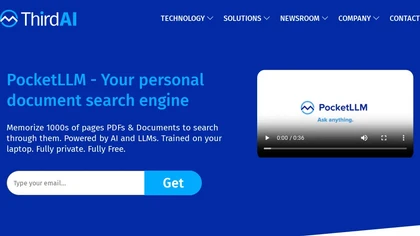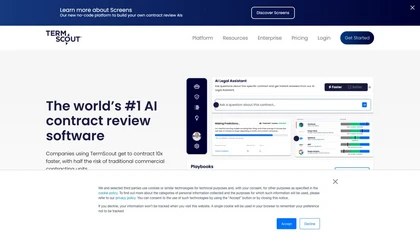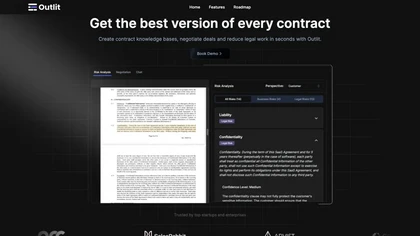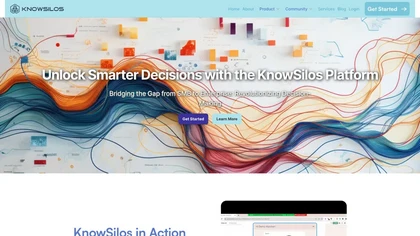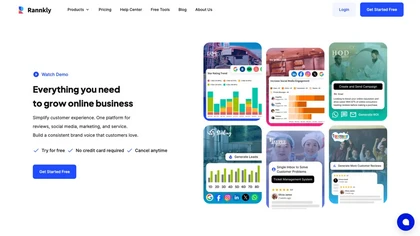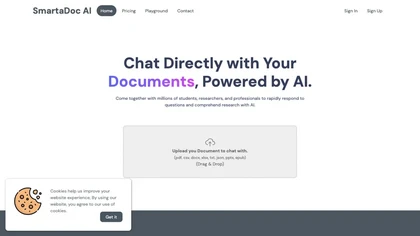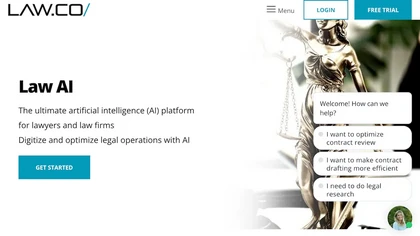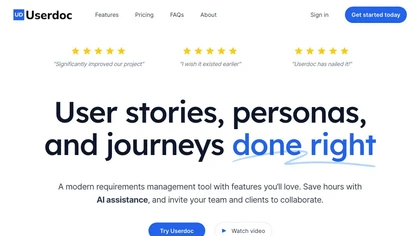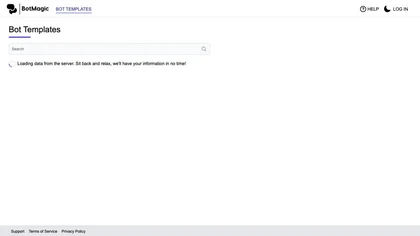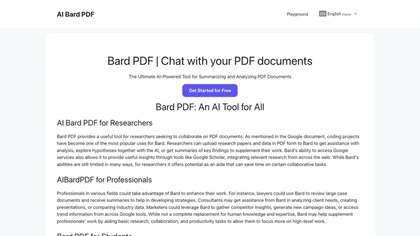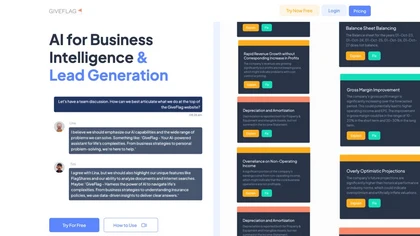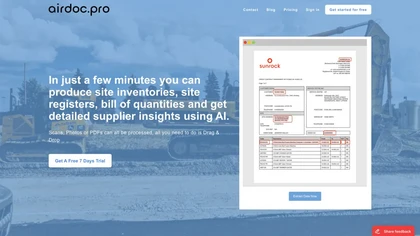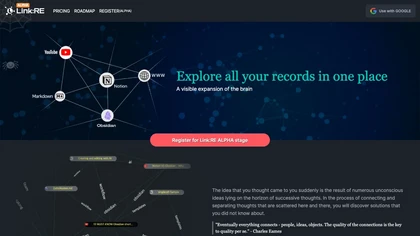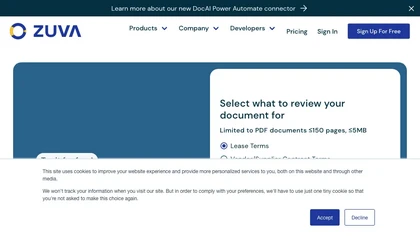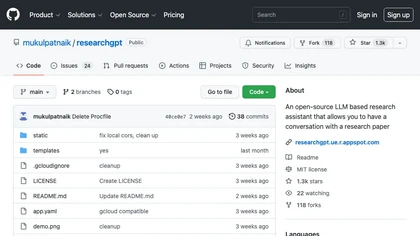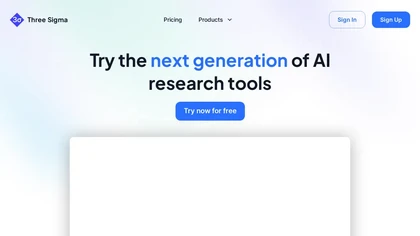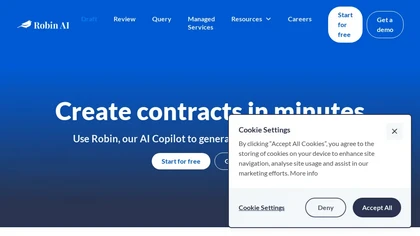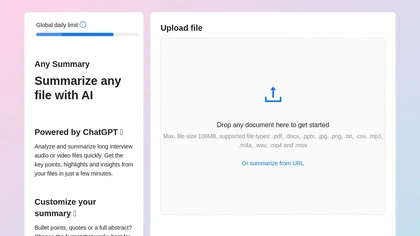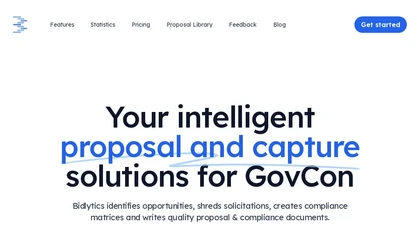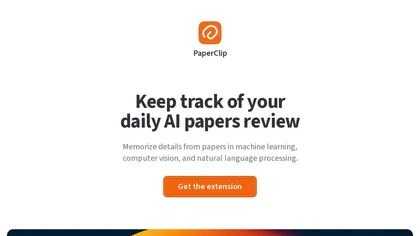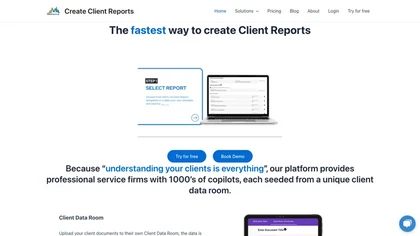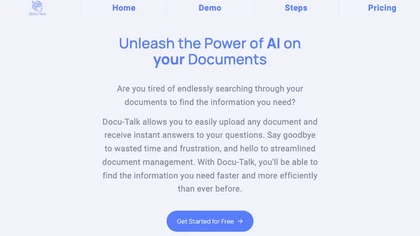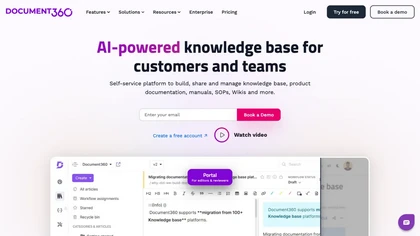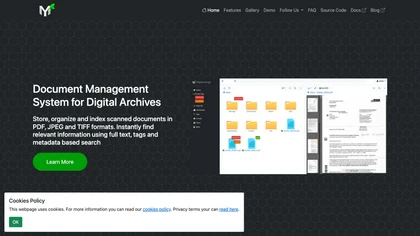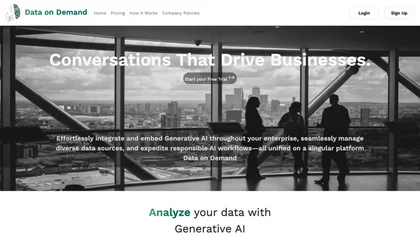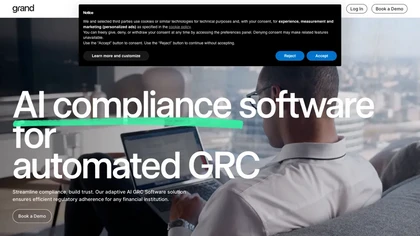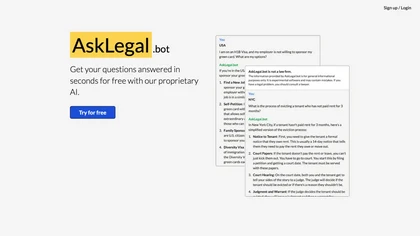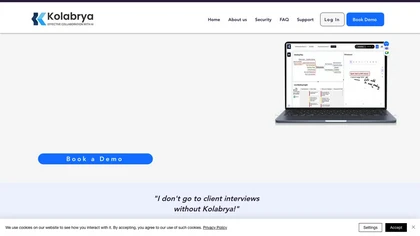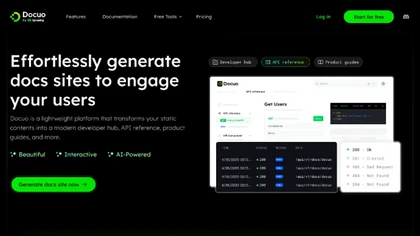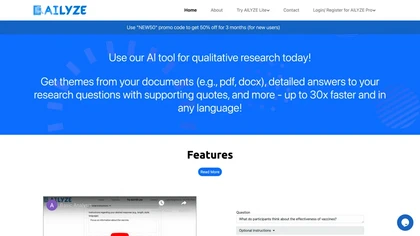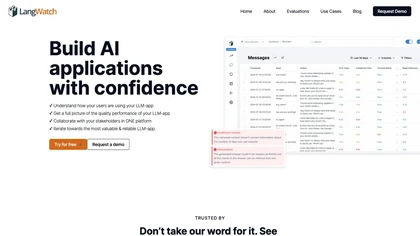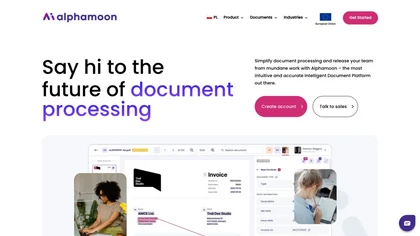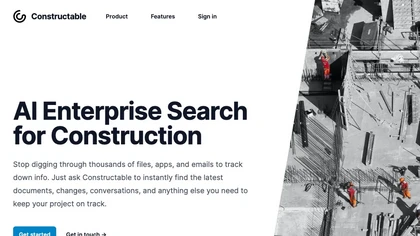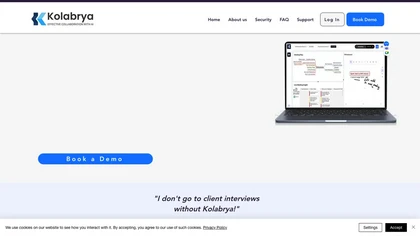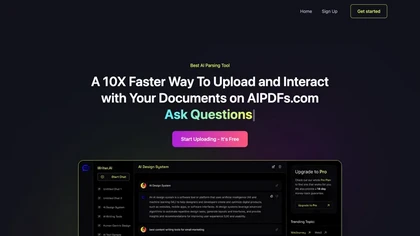AI use cases for Legal Compliance
Generative AI can be applied in various applications for legal compliance. Here are some examples to explore below for inspiration with AI tools to get you started with using AI in legal compliance.
🛠️ 70 AI tools for Legal Compliance
Explore a dynamic list of some of the most popular tools to get you started with various AI use cases and applications for Legal Compliance to streamline your workflows and productivity today.
Docu features
- Document upload functionality
- Summarization of legal documents
- Identification of key points and critical clauses
- Alerts for potential risks and beneficial clauses
- Utilization of AI algorithms for streamlining document review process
Legalysis features
- Contract risk analysis
- Document summarization
- Legal Language Model (LLM)
- Cross-country risk pointing
- Time-saving document summarization
Screens features
- Customizable AI contract review playbooks
- Instant redline suggestions within Microsoft Word
- Ability to run thousands of contracts at once using the Screens app
- Secure and powerful repository for storing contracts
- Expert-crafted playbooks with a focus on accuracy, trust, privacy, and data security
Melior AI features
- Cross-language semantic search
- Question answering
- Intelligent document processing
- Automatic categorization
- Dynamic/cognitive search
Magic Docs features
- Organize documents
- Rename documents
- Summarize documents
- Extract key data
- Enterprise-level security
Contract Lifecycle Management features
- Contract Lifecycle Management
- Multi-AI platform for contract collaboration
- Matter management
- Compliance management
- Electronic signatures
Speedlegal features
- Analyze contracts
- Instantly identify risks and provide suggestions
- Automatic summaries of contracts
- Red flag analyzer for hidden risks
- Answers to contract-related questions
- Legal documents summaries
🔥
Create your account, save tools & get personal recommendations
Receive a weekly digest of our handpicked top tools.
Unsubscribe anytime
Legaliser features
- Contract analysis
- Drafting
- Fairness assessment
- Risk analysis
- Anomaly detection
Contractify features
- Automatic contract tasks and notifications
- Proactive deadline management
- Secure contract repository
- Efficient contract approval flows
- AI capabilities for contract analysis and digitization
DraftCheck features
- Automated document review processes
- Surface formatting errors, cross-references, term definitions, and inconsistencies
- Multi-document conflict checks
- Document history tracking
- Local processing for enhanced privacy
MagicDocs features
- Accurate document categorization and labeling using advanced language learning models
- Convenient creation of concise document summaries within seconds
- Enterprise-level security with a focus on data confidentiality
- Upload, categorize documents, generate summaries, and extract information for form filling
- Document organization and information extraction from messy document collections
Linksquares
2.2Linksquares features
- Contract creation
- Post-signature analytics
- Document storage
- Salesforce integration
- Adobe sign integration
- Docusign integration
- Microsoft word integration
- Crisis management
- Contract review
- Data privacy compliance
- Fundraising
Docses features
- Automated summarization of legal documents
- Identification of red flags and critical clauses using advanced algorithms
- Real-time conversations with an AI legal assistant
- Caters to various professionals and industries
- Assistance in understanding legal jargon and making informed decisions
AnythingLLM features
- One-click Installation
- Runs locally
- Fully private
- Custom models integration
- Documents ingestion support
Legal Robot features
- Automated contract reviews
- Automated contract negotiations
- Legal analytics tools
Mitigated.io features
- Transforms penetration test risk assessment reports into actionable workflows
- Leverages collaborative workspaces for task assignment and progress tracking
- Provides AI-enriched mitigation guidance for security vulnerabilities
- Supports easy import of assessment reports
- Enables users to enlist security mitigation services directly from the dashboard
Papermark features
- Secure document sharing
- Real-time analytics and insights
- Grammar checking
- Content summarization
- Custom link sharing
ReadyRedact Document Redaction features
- Redacting
- Documents
- Privacy
- Data protection
- Compliance
- Gdpr
- Ccpa
- Lgpd
- Popi
- Hipaa
AskDocs features
- Uploading multiple document types
- Smart document reader
- Information retrieval
- User data security
- Cloud storage
Maigon.io features
- Screens agreements
- Answers legal questions
- Provides guidance
- Delivers final contracts in record time
- Compliance reviews for gdpr, privacy, data protection, and other legal agreements
DocsDNA features
- Streamlined document solutions
- Collaborative editing
- User management capabilities
- Language adaptability features
- Customizable document handling
RiskAssessmentAI features
- Automate security questionnaire responses
- Scan documentation
- Build knowledge base
- Support various assessment formats
- Collaboration between teams
My Pocket Lawyer features
- Document review and analysis
- Contract drafting
- Legal advice in English and Spanish
- Identification of legal risks
- Information security and confidentiality
Typed features
- Collaborative document creation
- Organization and productivity focus
- Simplified process
- Distraction elimination
- Platform for saving references
Airstrip AI features
- Personalized questionnaire for document creation
- Lawyer-level revisions suggestions
- End-to-end encryption (AES-256)
- Compliance with regulations (HIPAA, GDPR, CCPA)
iQ Suite features
- Uploading pdf files
- Crafting queries for document insights
- Automatically detecting and extracting data
- Presenting extracted data in charts and tables
- Integrating with other apps through rest api integration
Legal Assist AI features
- Legal research automation
- Contract analysis
- Case management
- Collaborative tools
docugami features
- AI Data Extraction
- Generative AI for document analysis
- Industry-specific insights application
- Transformation of unstructured documents into structured information
- Integration with familiar tools and business systems
Intics features
- Document processing for all types of documents
- Extraction of valuable data from handwritten documents
- Pre-trained models for various industries
- Data lake for pure data analysis
- Auto asset classification for actionable insights
SWMS AI features
- Tailored risk assessments generation
- Customizable safety policies
- Personalized document generation
- Integration of AI assistant for safety information
- Streamlining compliance processes
Pocket LLM features
- Semantic search
- Customized learning
- Fine-tuning search results
- Summarizing results
- Private and local
TermScout features
- Powerful platform for contract review
- Leverages secure AI technology for analysis
- Provides immediate insights without delays
- Option to achieve up to 99% accuracy through verification
- Trusted by thousands of companies and law firms worldwide
PrivacyQuest features
- Record processing activities management
- Incident/breach management
- Individual rights management
- Consent management
- Automated document generation
Outlit AI features
- Automated analysis of legal and business risks within contracts
- Identification of negotiation opportunities for cost savings
- Consolidation of all contracts into a single knowledge base
- Streamlining workflows in contract management processes
- Support for businesses in risk analysis and negotiation
YC Application Optimizer features
- Data integration for structured knowledge graphs
- Extraction of insights from PDFs using NLP algorithms
- Creation of easily digestible reports with customizable templates
- Aggregation of large-scale data for quick analysis
- Visualization of critical information through persuasive reports
Rannkly features
- Unified inbox for managing review replies
- Automated review analysis for insights
- Competitor analysis
- Automated responses powered by AI
- Enhancing online reputation and customer experiences
SmartaDoc AI features
- Support for multiple file formats like PDF, CSV, DOCX
- Chat history for tracking interactions
- Document summarization capabilities
- Quick starting questions to facilitate user engagement
- Efficient extraction of key information from documents
Law.co features
- Custom Semantic Search
- AI Contract Review Assistant
- AI Legal Contract Drafting & Preparation
- Legal Research
- Contract Review Automation
Userdoc features
- Requirement management
- User stories
- Personas
- User journeys
- Integration with project management tools
BotMagic features
- Interpreting and analyzing documents in Confluence
- Swift document summaries
- Custom queries for deeper exploration
- Jira ticket handling and summarization
- Advanced conversational experiences with information security oversight
Bard PDF features
- PDF document analysis
- AI assistance for data analysis
- Integration with Google services
- Summarization of key findings
- Multi-file processing
GiveFlag features
- Analyze various documents such as business intelligence reports, form 10-K filings, policy analysis, contracts
- Extract relevant information from sources like academic papers, privacy policies, insurance reviews
- Automate administrative and transactional tasks
- Train GPT-based engines with expert knowledge
- Ensure data security with restricted access to files and chat messages
Airdoc.Pro features
- Data extraction
- Document scanning
- Data categorization
- Automated organization
- Material delivery tracking
Link:RE features
- Summarization of key sentences
- AI-powered with large language model
- Tagging and summarization of thoughts
- Relationship calculation among thoughts
- Notifications for unused documents
Zuva Contracts AI features
- Pdf document analysis
- Customizable options for different types of contracts
- Information extraction
ResearchGPT features
- Summarize
- Extract key points
- Answer questions
- Provide citations
- Generate references
Three Sigma features
- Advanced search technology
- Imagine assistant
- Chatgpt plugin
ContractReader.io features
- Read
- Understand
- Syntax highlighting
- Testnet support
- Live on-chain values
- Compare code in-browser
- Security reviews
Draft features
- Automated contract creation
- Intuitive tools for pre-approved templates
- Comprehensive resource management
- Permissions, controls, and approvals
- Ai copilot feature that generates common agreements in minutes
AnySummary
1.4AnySummary features
- Document analysis
- Summary generation
- Document organization
- Speech-to-text transcription
- Audio and video file processing
Flowsecure.io features
- AI powered data collection system
- Recurring data collection
- Secure file sharing
- Create surveys
- Automate daily data collection procedures
Bidlytics - AI for GovCon features
- Enhanced Privacy & Security
- Seamless Bid Discovery
- Automatic Solicitation Shredding
- Compliance Matrix on Autopilot
- Fast & Accurate Proposal Generation
PaperClipapp features
- Paperclip helps users find and retrieve important findings from research papers, blog posts, and news articles.
- Paperclip can run locally without sending data to external servers for privacy and security.
- Paperclip indexes and saves bits of data locally for offline support and search.
- Paperclip has a clean and user-friendly interface with options to reset or delete saved data.
- Paperclip is designed to help researchers and professionals manage and organize their knowledge efficiently.
Client Reports features
- Unique client data room for uploading and utilizing client documents
- Automatic generation of client reports including business plans, company valuations, diligence reports, and investor reports
- Exportability of reports to Microsoft Word documents
- Insights and information on client's business activities, projects, and key performance indicators
- Applicability in various sectors such as finance, accounting, legal, construction, retail, and healthcare
Docu-Talk features
- Upload documents
- Receive instant answers
- Documents management
Lens by GitBook features
- Organize information efficiently
- Built-in OpenAPI blocks
- AI-powered content audit
- Git-like version control
- Modern, block-based editor
Document360 2.0 features
- AI-powered knowledge base platform
- State-of-the-art editor
- Category manager
- Analytics
- Tools for product strategy, FAQs, troubleshooting guides, and API documentation
papermerge.com features
- Document management system
- OCR technology
- Full-text and metadata-based searches
- User-friendly interface
- Open-source solution
Data on Demand features
- Seamless integration of generative AI throughout enterprises
- Management of diverse data sources
- Expedited responsible AI workflows
- Efficient extraction and analysis of relevant data
- Visualization of complex datasets
Grand features
- Automated GRC software
- Efficient regulatory adherence
- Compliance workflows automation
- Policy and regulatory news monitoring
- Insights into regulatory changes
AskLegal.bot features
- self-service document review
- instant answers
- synthesizes information
- personalized advice
- confidential and secure discussions
Kolabrya features
- Automates drafting witness interview notes and summaries
- Provides AES 256 encryption for data safety
- Enables searchable interview segments
- Integrates with Zoom, Teams, and Google Meet
- Offers transcription accuracy powered by Deepgram
Docuo
4.9Docuo features
- Create a modern customer-facing docs site
- Support various document types
- Link Github repository and leverage MDX
- Host multiple distinct sets of docs
- Provide rich components and customized styling
- Support data analytics and SEO
AILYZE features
- Summarize documents
- Perform thematic analysis
- Generate answers to questions
LangWatch features
- Monitoring and analyzing LLM applications
- Collaboration with stakeholders on a single platform
- User behavior understanding through LLM-powered apps
- Monitoring and analytics capabilities for generative AI companies
- Seamless integration with Azure and OpenAI SDKs
Alphamoon features
- Document automation
- AI-powered
- Error detection
- Optimization tools
- Detailed statistics and analytics
Unfig features
- Automated data capture from various logistics documents
- Universal TMS integrations for seamless connectivity
- Embeddable customer dashboards for real-time data insights
- Scraping information from numerous sources for visibility into logistics data
- Streamlining logistics operations with unprecedented speed and efficiency
Constructable features
- centralized project data
- ai powered insights
- realtime data sync
- support your existing software
Kolabrya AI features
- Automated drafting of witness interview notes and summaries
- Data safety with AES 256 encryption and Microsoft recommended Azure infrastructure
- Seamless integration with Zoom, Microsoft Teams, and Google Meet for interview recording and saving
- Searchable interview summaries and segments for immediate review
- High transcription accuracy powered by Deepgram
AIPDFs features
- Document parsing
- Advanced algorithms
- Question-based interaction
- Free document uploading
- Insight generation
